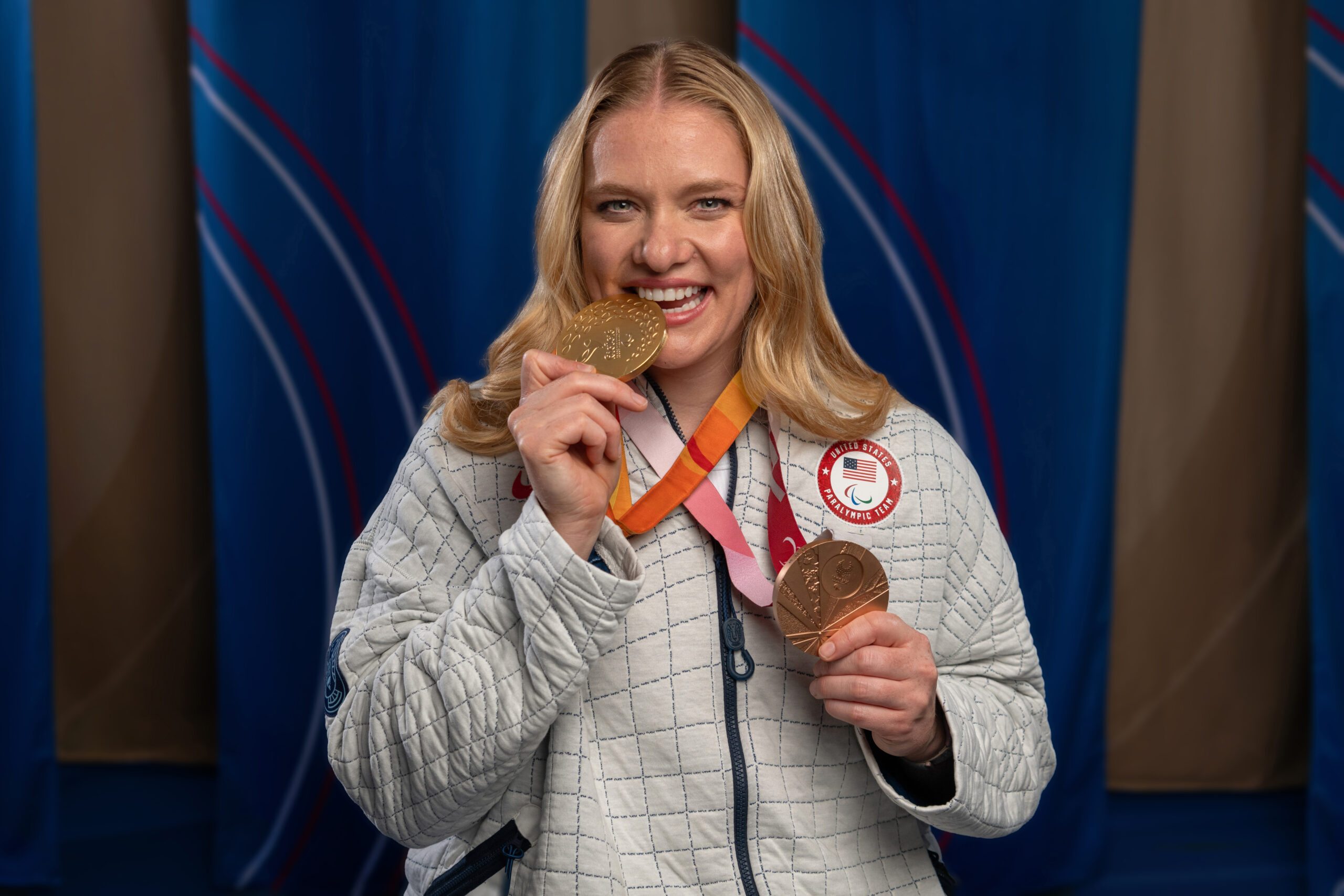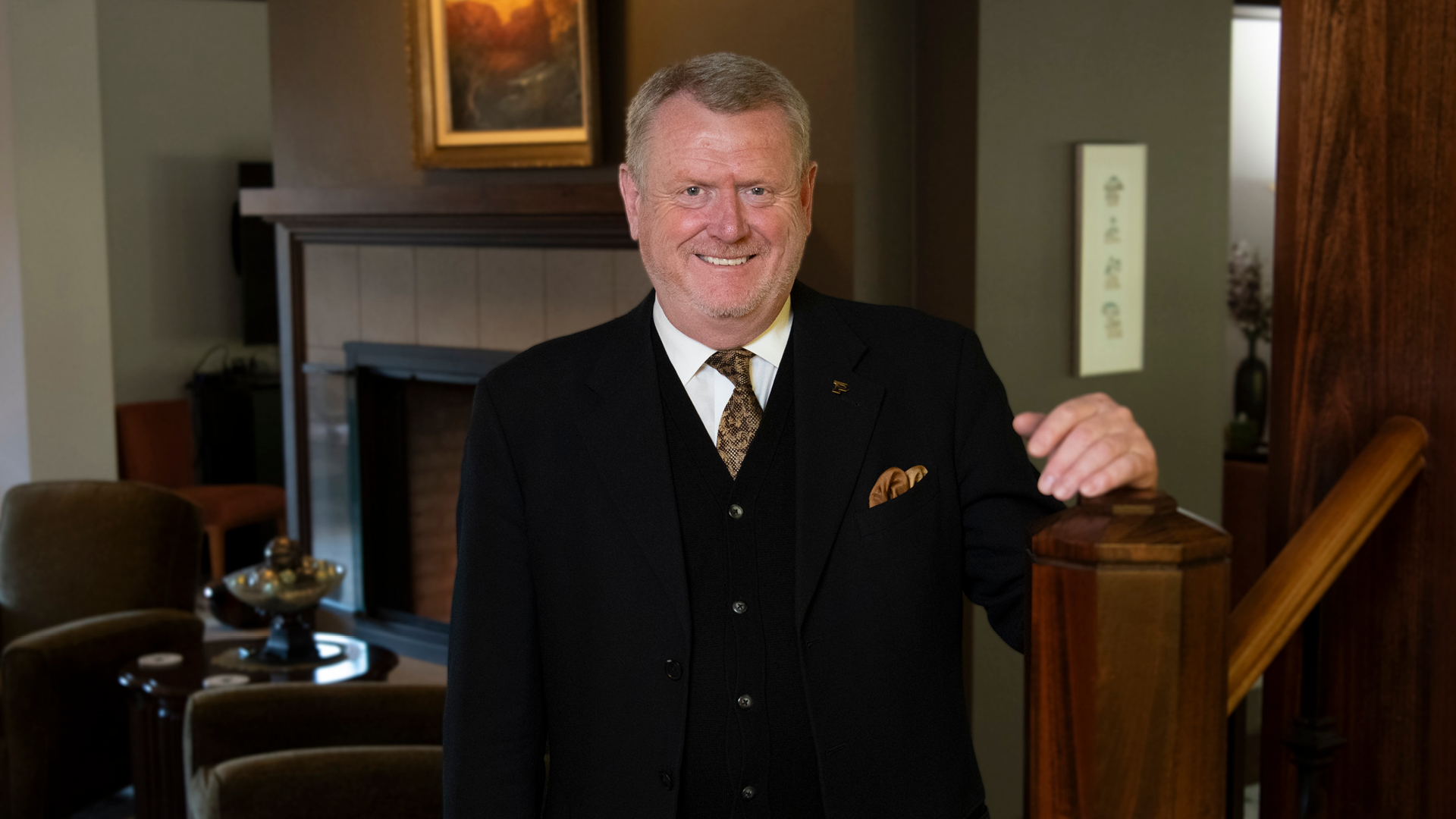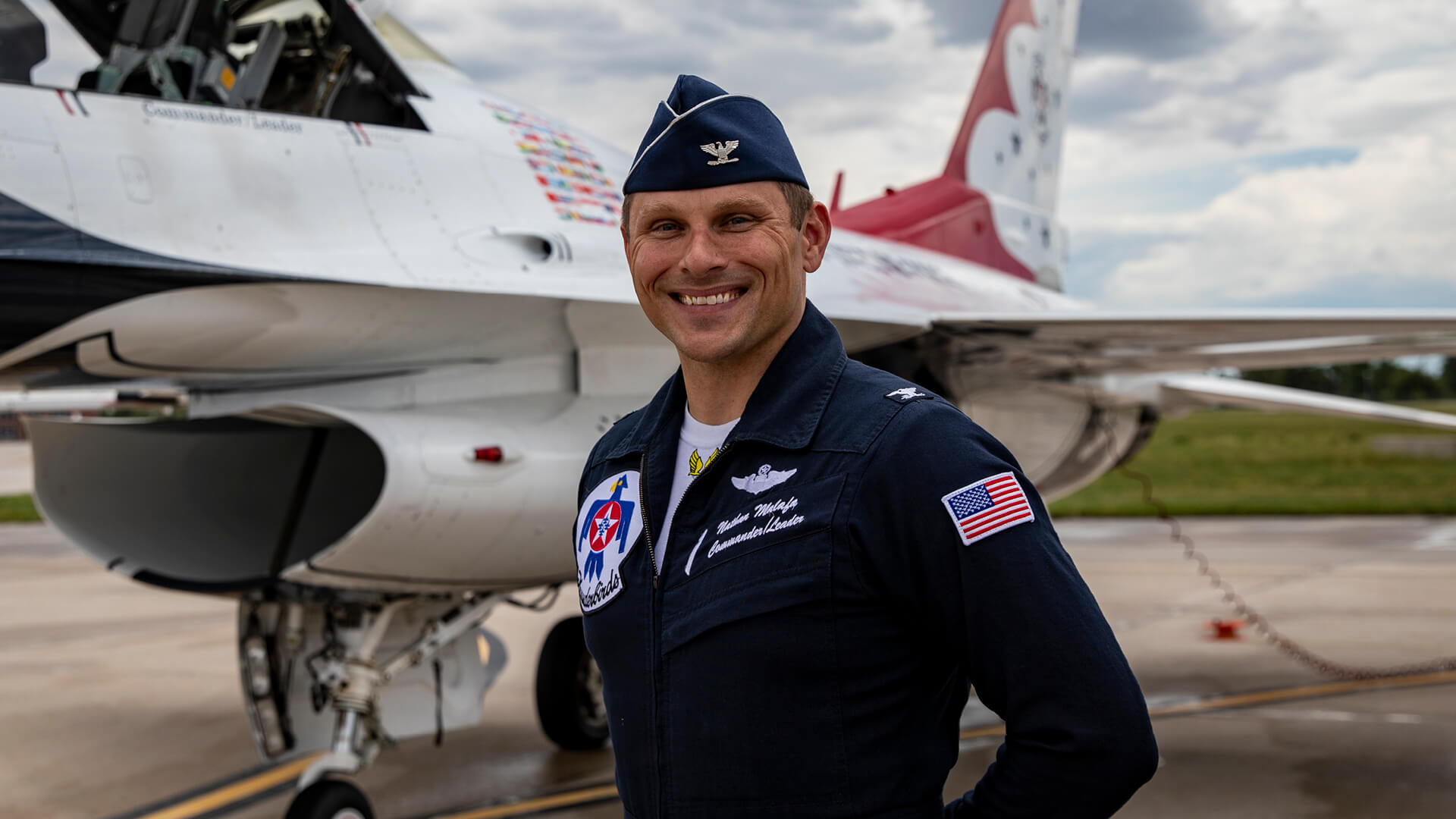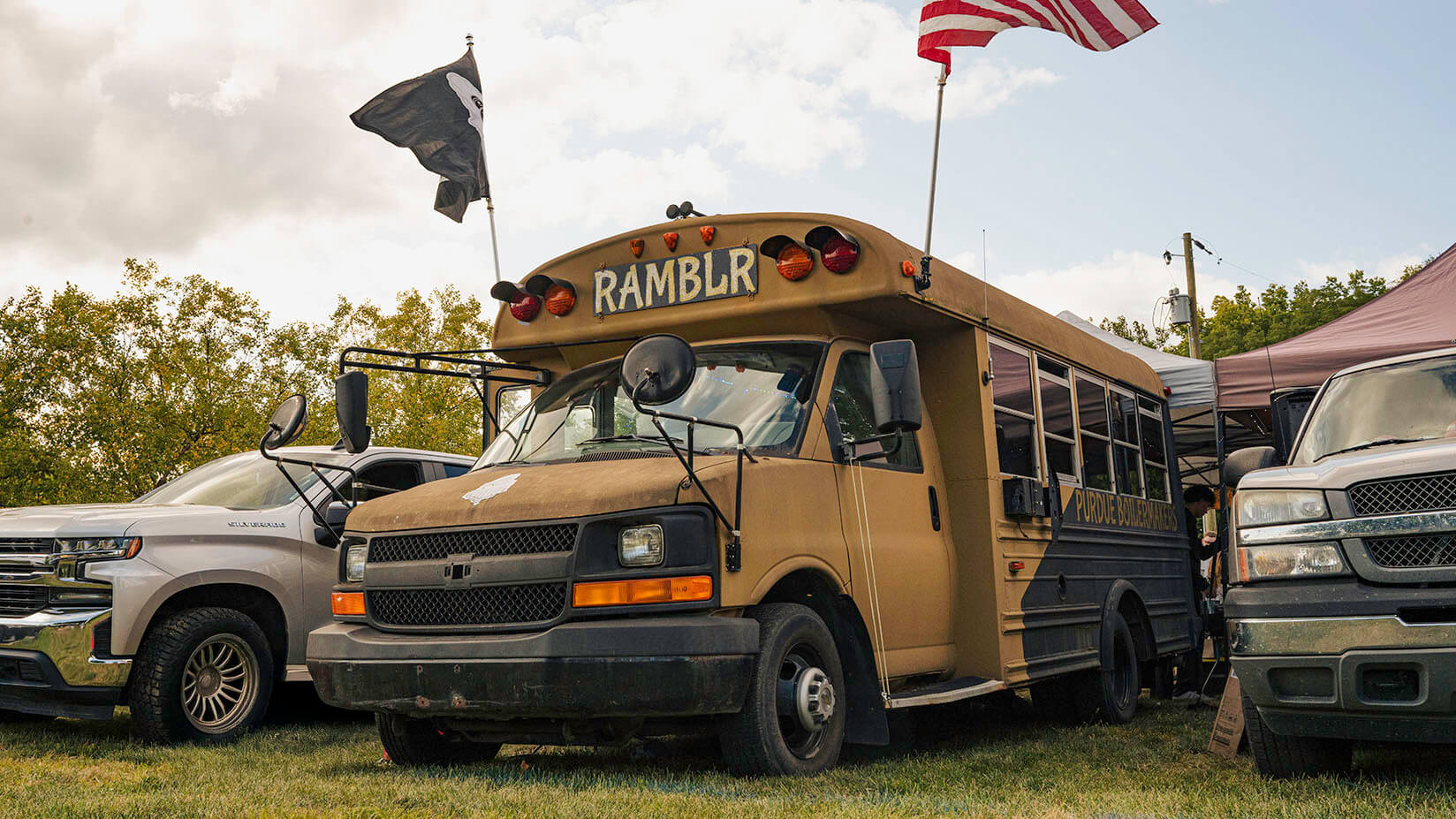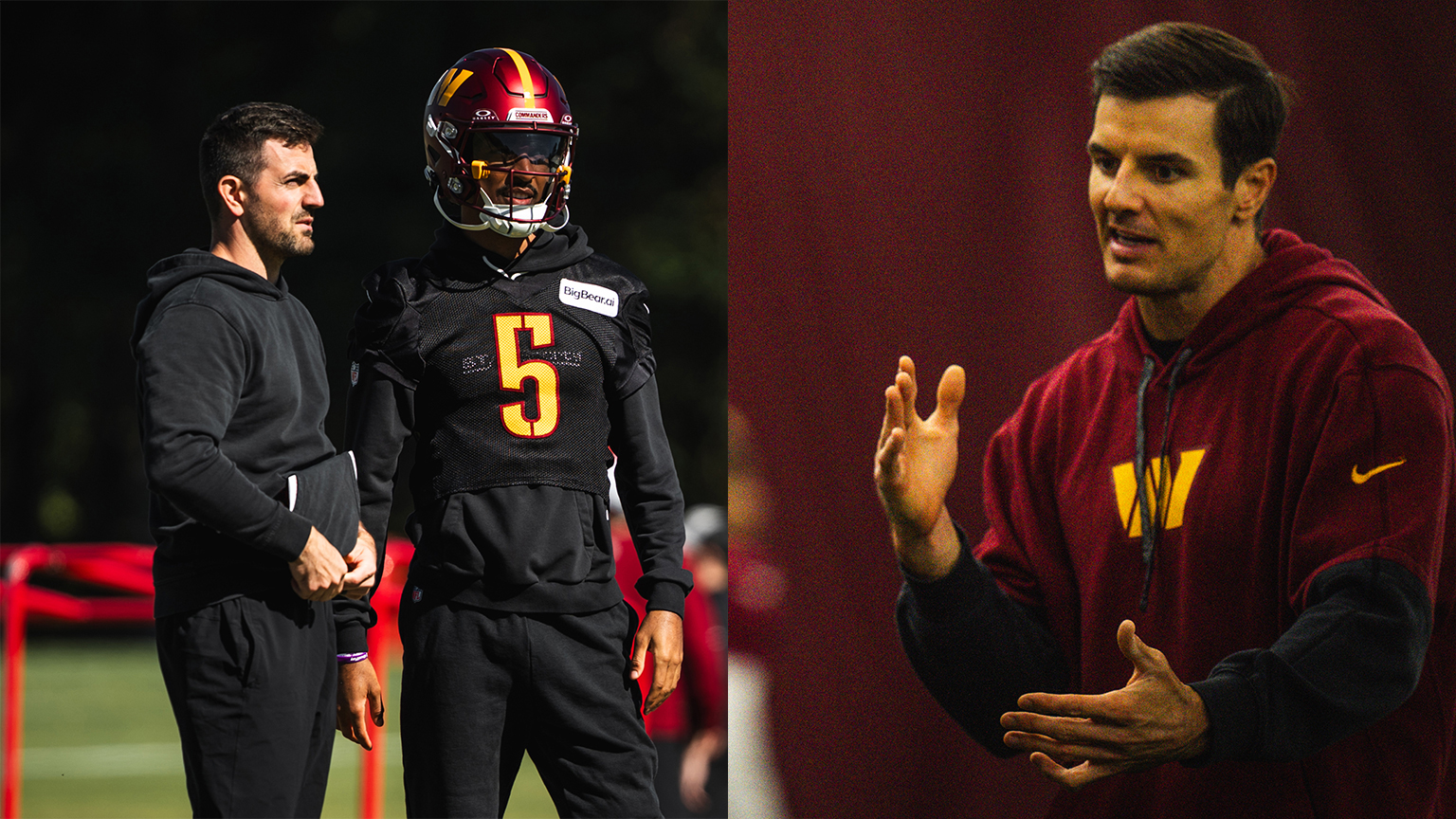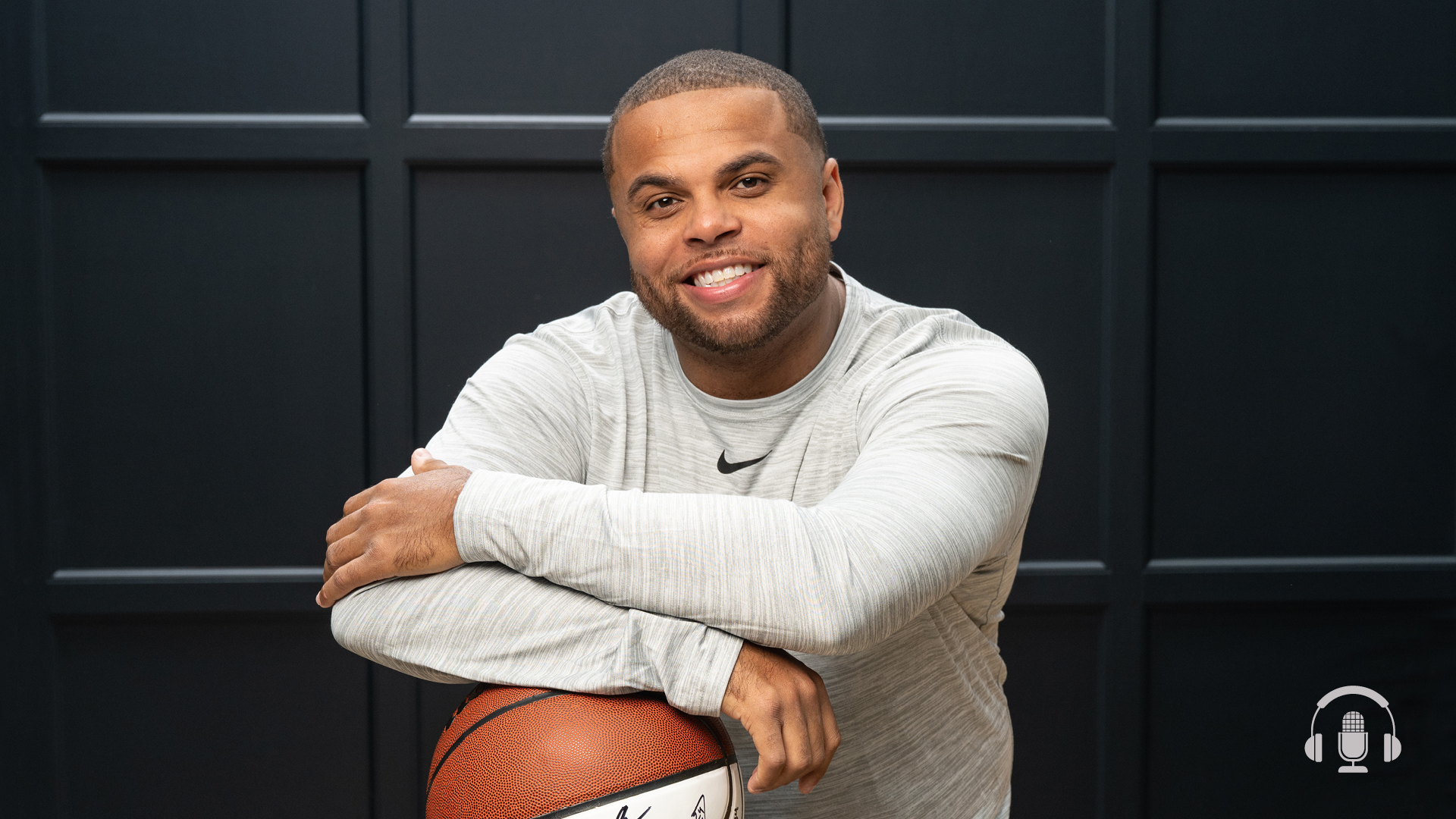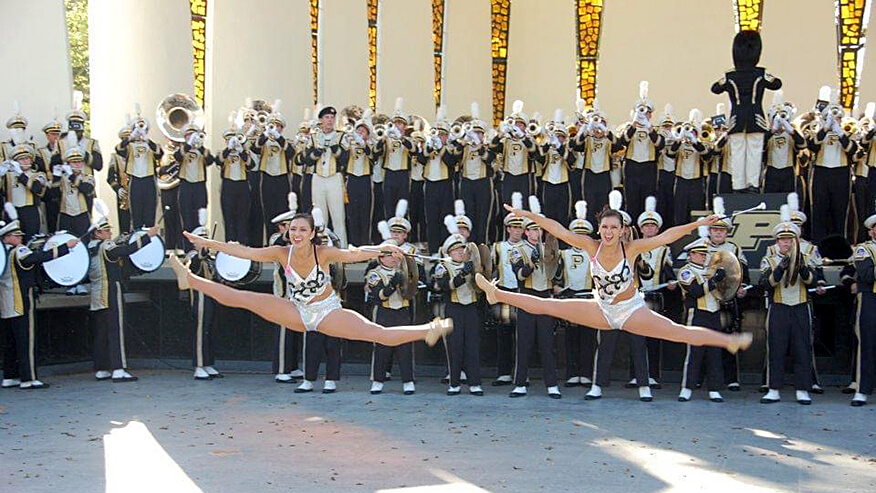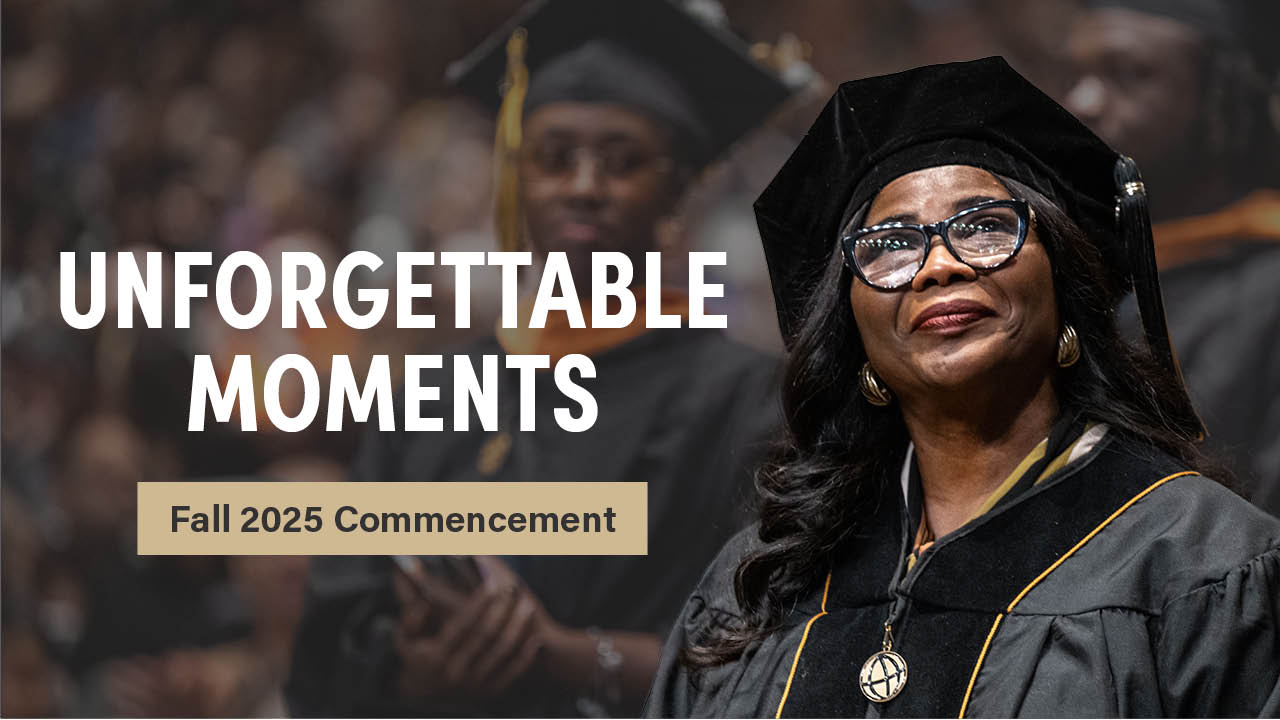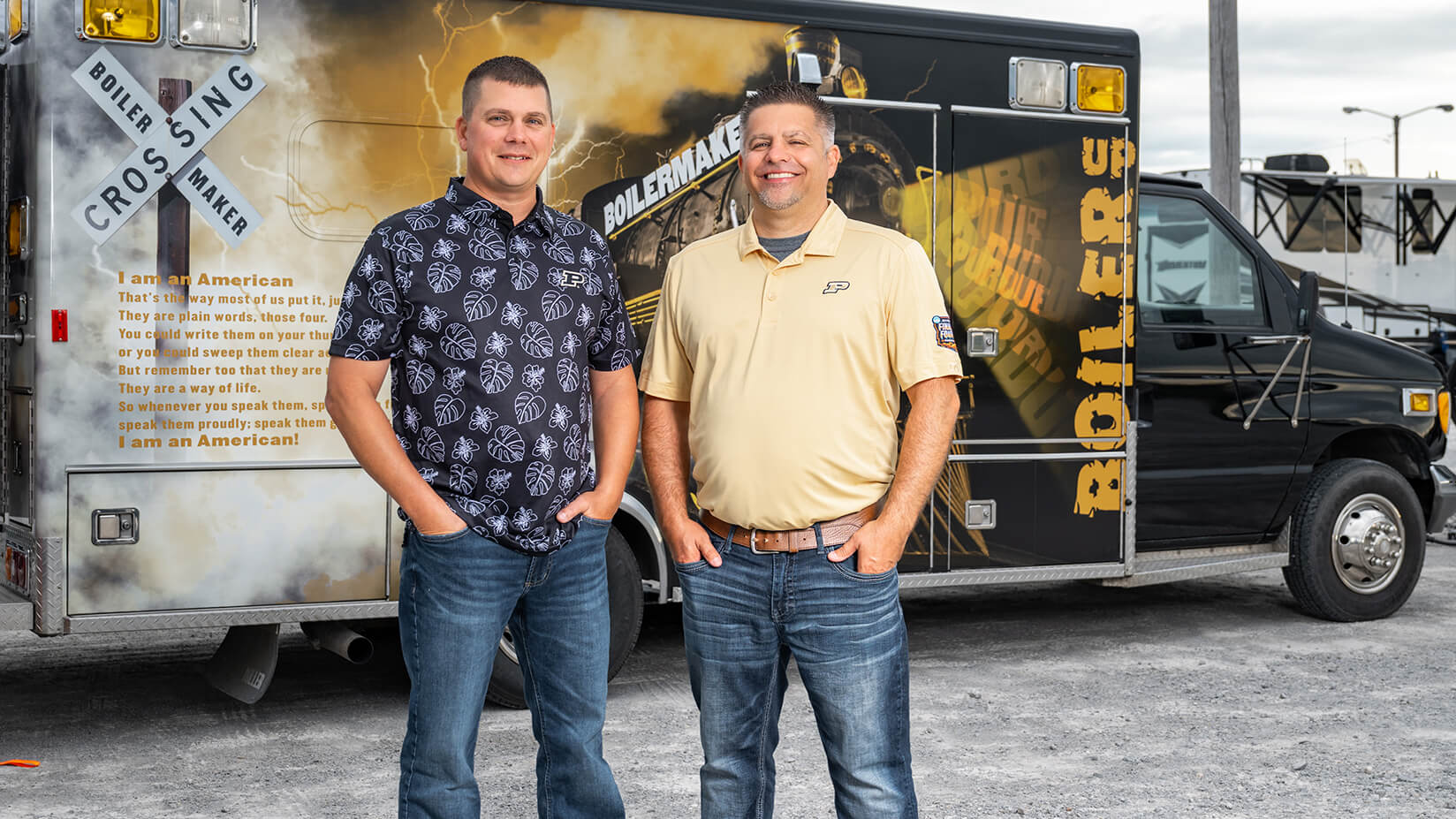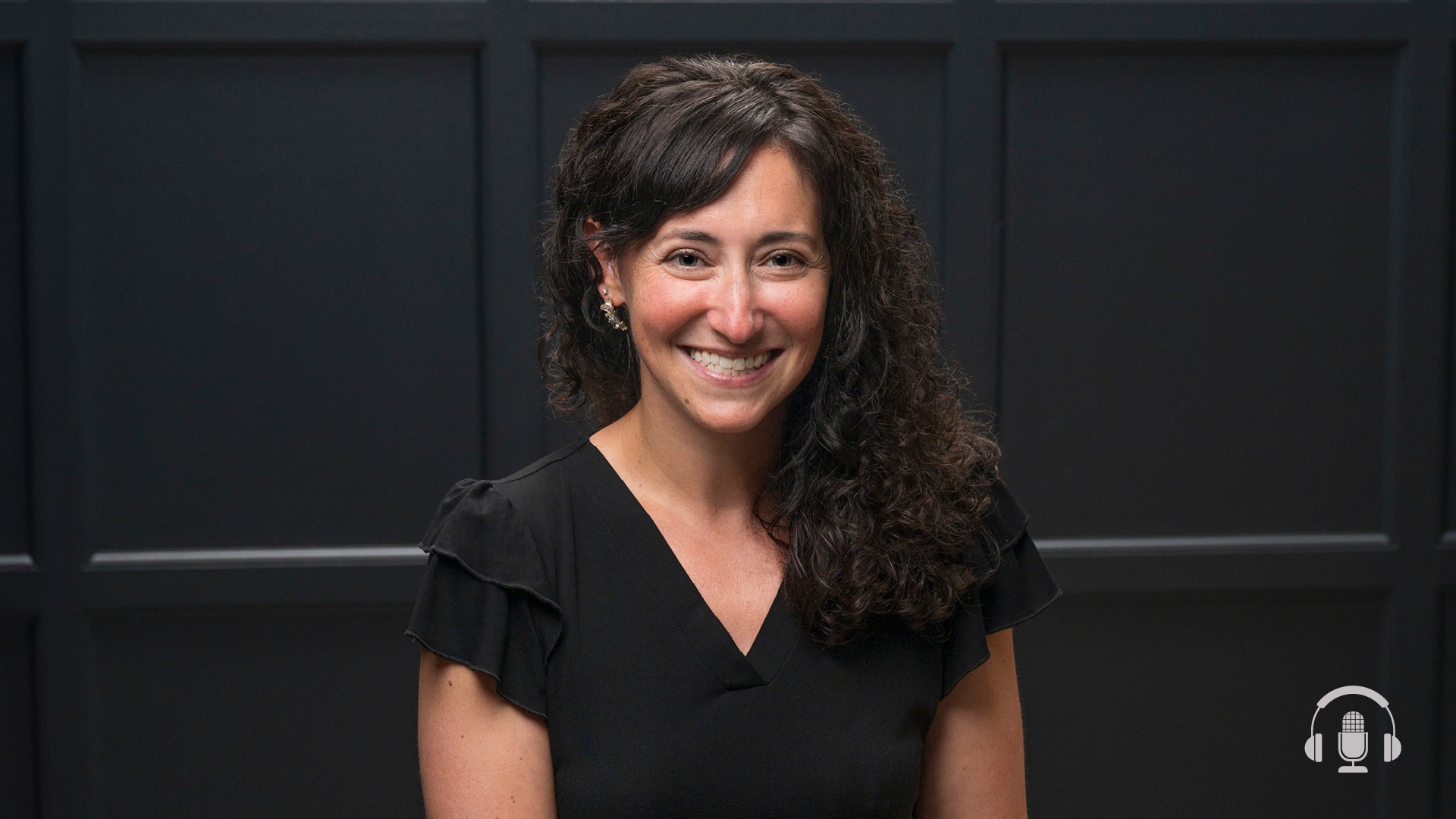Guild partnership with Team USA has athlete chasing down the next dream
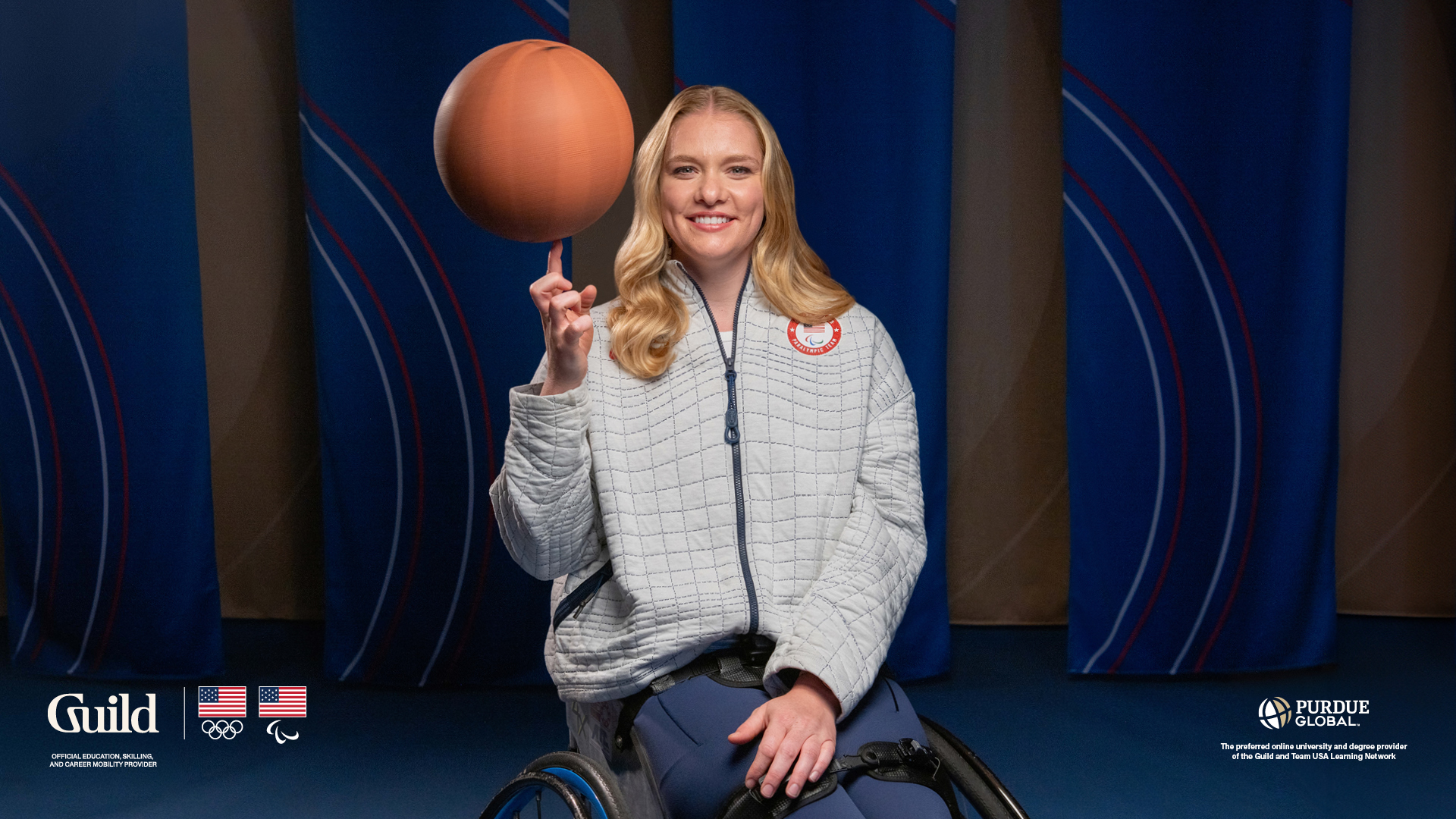
U.S. Paralympian Rose Hollermann is going back to school, thanks to Guild's partnership with Team USA, earning a master’s degree in education with Purdue Global. (Purdue University image/John Underwood)
This four-time U.S. Paralympian and Purdue Global student looks toward a future that includes a master’s degree in education.
Focus.
Drive.
Determination.
Strength.
You’d expect to be able to describe any elite athlete with these words, and four-time U.S. Paralympian Rose Hollermann exudes all of them. But perhaps one thing that’s visible in her face, her body language and how she speaks is a trait that makes her exceptional on a completely different plane — something that may be surprising to see in someone who has suffered so much.
Joy.
When she was 5, Hollermann, along with her mom and three older brothers — Seth, Shane and Ethan — were in a car accident that partially paralyzed Rose from the waist down and claimed the lives of Shane and Ethan.
“When something really bad happens to you, you’re sad for a while. You grieve. After a long time, that first moment you feel happy again …” She pauses, searching for words to describe it.
“That kind of happiness is really hard to describe. It’s like a breath of fresh air. It’s intense. You’ve seen how bad things can be, and it makes you appreciate more.”
As she worked toward functionally walking again, 5-year-old Rose participated in adaptive swimming and soon went competitive with it. Then, she couldn’t be stopped. She tried sled hockey, archery, tennis, cross-country skiing, and track and field sports. But when she discovered wheelchair basketball, she found family.
“I have a hard time calling it work,” she says. “I think if you’re doing something you like, then it isn’t work. It’s something more joyful than that. Finding things I’m passionate about really motivates me.”

It has motivated her all the way to the top of her sport. At 15, she became the youngest person to qualify for the national team. She competed in her first Paralympics in London in 2012. She came back to win gold in 2016 at the Rio Games, and then for yet another round in the Tokyo 2020 Games, where she helped lead a young, completely new team to the bronze. Now, she’s on her way to her fourth Paralympics appearance in Paris.
But her plans don’t end there. She’s seeing a future beyond basketball — one helping kids find their happiness, just like the volunteers in her community who helped her after her accident.
“The reason we are who we are as individuals is because of the people who gave back to us. Growing up as a disabled kid, I was surrounded by people who were volunteering. Their time was dedicated just for us to have a little bit of happiness,” she says. “I hope, after basketball, I can spend my life giving back to others, whether it’s being a teacher or working in the sport.”
Team USA and Guild came together at just the right time, then, to inspire Hollermann to earn a master’s degree in education from Purdue Global.
I think as a 5-year-old, realizing that maybe something you thought was taken away from you is actually something you can work really hard to gain back — I think that was a really great lesson for me, and I’ve held onto that.
Rose Hollermann
U.S. Paralympian, Wheelchair Basketball
MS Education
Learning to walk again
Hollermann says it was first thought that her paralysis from the waist down was complete, and there was no hope of walking again.
But in a shocking moment, she confided to her uncle, who sat in the room with her.
“I told him, ‘They’re saying I can’t feel my feet, but I can feel my feet.’”
This sent her uncle chasing down a doctor, who ran more tests and concluded that her spinal cord injury was partial, not complete. It would be possible after all for her to learn to walk again. But it was going to take a lot of hard work.
Although her capacity to walk would be limited (she still uses a wheelchair most of the time because her affected gait has a history of causing her severe knee pain), the mental shift had a profound impact on her young mind.
“I think as a 5-year-old, realizing that something you thought was taken away from you is actually something you can work really hard to gain back — I think that was a really great lesson for me, and I’ve held onto that,” she says.
The long process of relearning to walk and the lessons it taught her carried her through other challenges down the road. She became stubborn. Then she became determined.
“As an adult, looking back at the therapy I had to do to learn to walk again, I learned valuable lessons about putting the physical work into your body to reach a goal,” she says. “Now, as an athlete, it’s something I get to feel every day — setting goals for myself that I can try to reach to become a better player.
“My mom likes to say, ‘If you want Rose to do something, then tell her she can’t.’ When I started wheelchair basketball, I was always the only girl. So just the idea of someone saying, ‘You can’t do that; you’re a girl,’ was something that really motivated me. I wanted to prove that we’re the same.”
But when it came to narrowing her scope to one sport, there was something healing about playing with a team as opposed to competing in individual sports like archery or tennis.
“I really liked basketball because it was a big group of people working together, which was something I’d lost,” she says. “Our family was basically cut in half, and that whole big-family feeling is the thing I miss the most.”
The joy only increased as her training intensified, and she started to have success in her chosen sport. Now, as a member of Team USA, Hollermann says it has the ultimate large family feel to it, especially when she became the youngest on the team at age 15.
“I grew up on the national team. It was my first opportunity to have sisters, and my team really treated me like their little sister. I think the second youngest was 10 years older than me,” she says. “They really brought me under their wing.”
That year at the London Games, Team USA barely missed the podium, finishing in fourth place. But the experience was life-changing, and Hollermann was ready to gain some speed.
But it was the next Paralympics in Rio that would change her relationship with basketball forever.
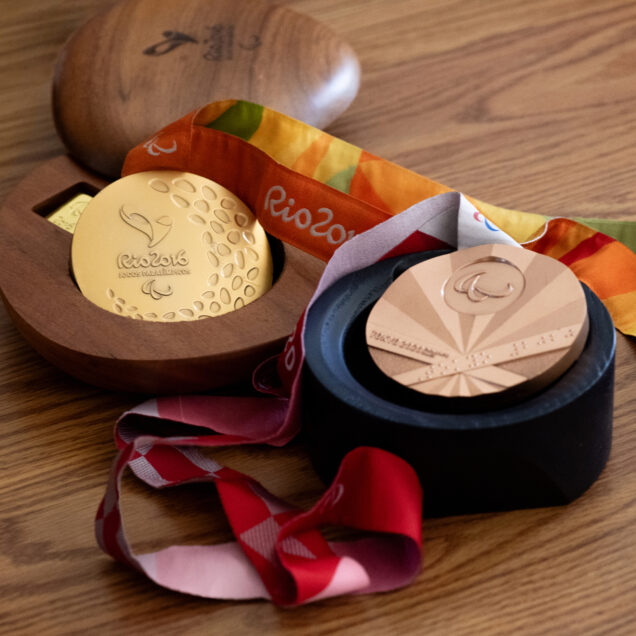
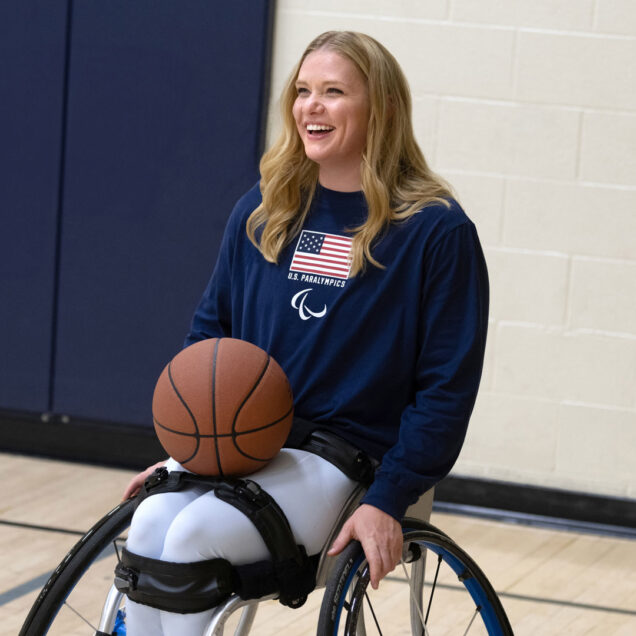
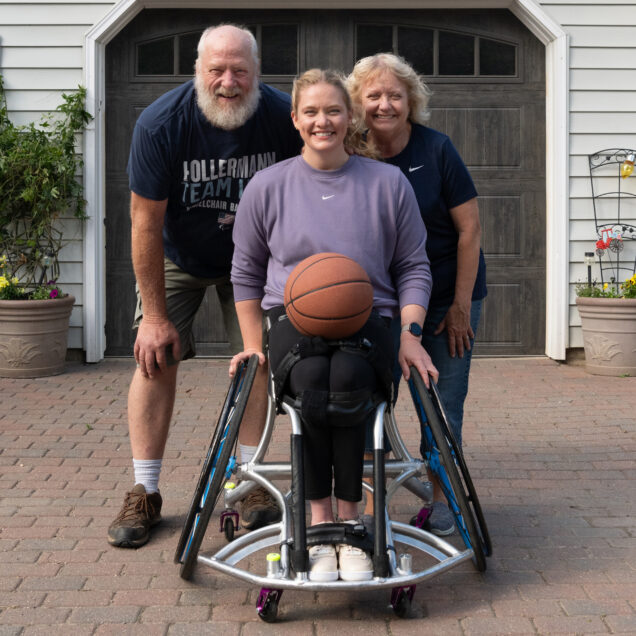

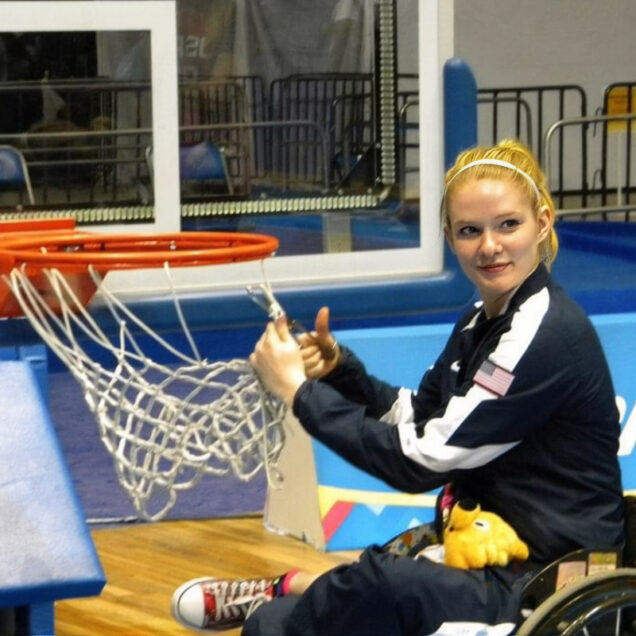
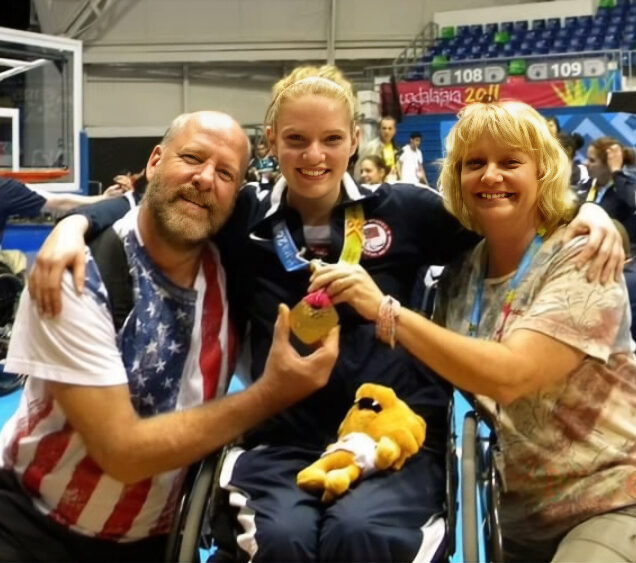
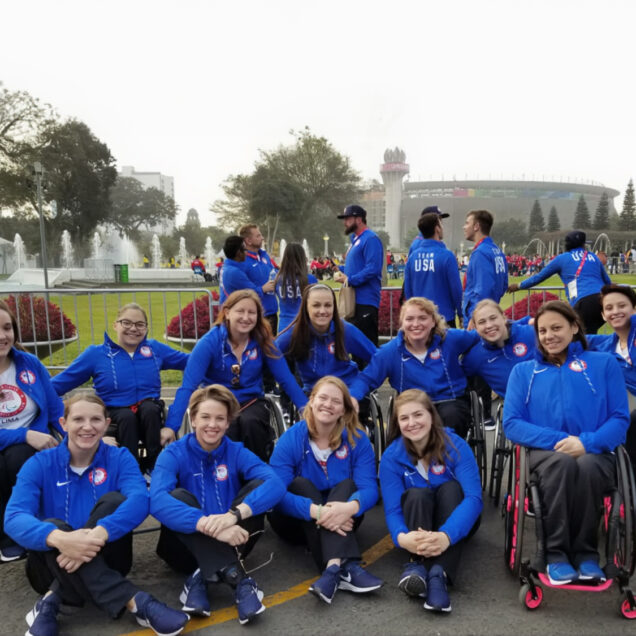
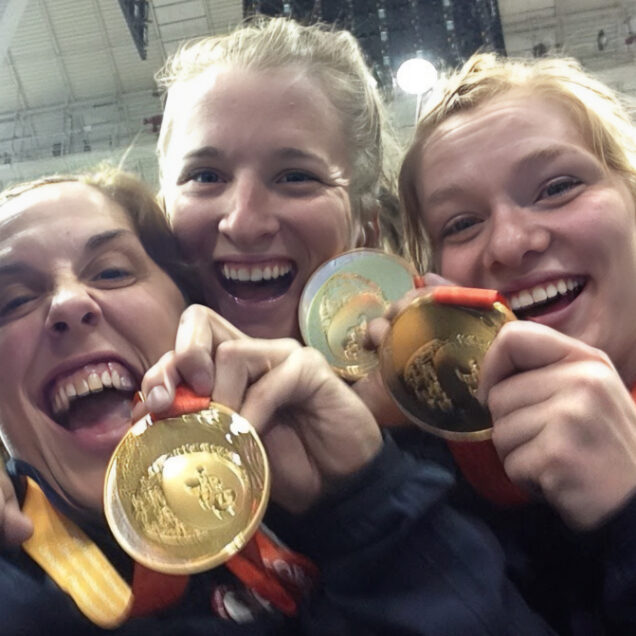
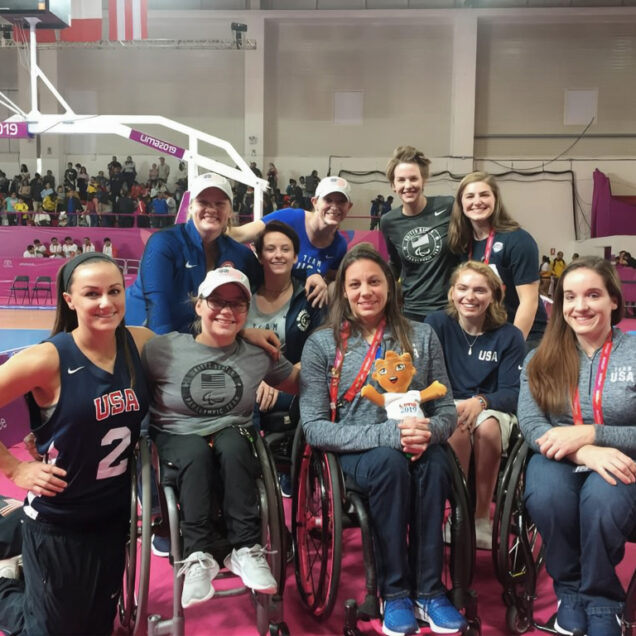
Gaining speed, facing setbacks and moving Team USA forward
It was the ultimate win — Hollermann helped Team USA bring home the gold in 2016.
“We won gold in Rio. It’s a dream come true for every athlete; you’re always striving for gold,” she says. But that ultimate high was followed by what felt like an overwhelming challenge.
“In 2016 we had all but three girls retire after the Rio Games, which is something that’s actually really rare in wheelchair basketball,” she says. “In 2020 we brought a really young group of girls, super inexperienced, to the Tokyo Games.”
Hollermann was thrust into leadership on that team, working relentlessly to help each of her teammates maximize their skill set and develop the team chemistry.
“We had to really grind for everything we earned, and that made it really special,” she says. “We ended up winning bronze in Tokyo, and it felt really great, knowing how much work we put into it. I think we put more work into the bronze medal than we did the gold just because we came from so far behind. We had to learn and grow together to get to that position.”
In 2019, while training for the Tokyo Games, Hollermann earned her bachelor’s degree in elementary education and was almost simultaneously presented the opportunity to earn her master’s — a one-year-only offer.
“I thought going abroad for the first time and playing professionally, I would be too overwhelmed to be taking classes on top of that,” she says. “I always regretted it because I just didn’t get the opportunity again.”
But when she took a trip to Japan to visit a college friend, she started reconsidering.
“My friend was from Japan and got his master’s in the States. When he went back to Japan, he started a program for adaptive sports. During my visit, you could see how much his master’s degree helped, how much he was able to do with it. Having that real-life experience, seeing him thriving, I was ready to start exploring options,” she says.
That’s when the opportunity of a lifetime landed in her email.
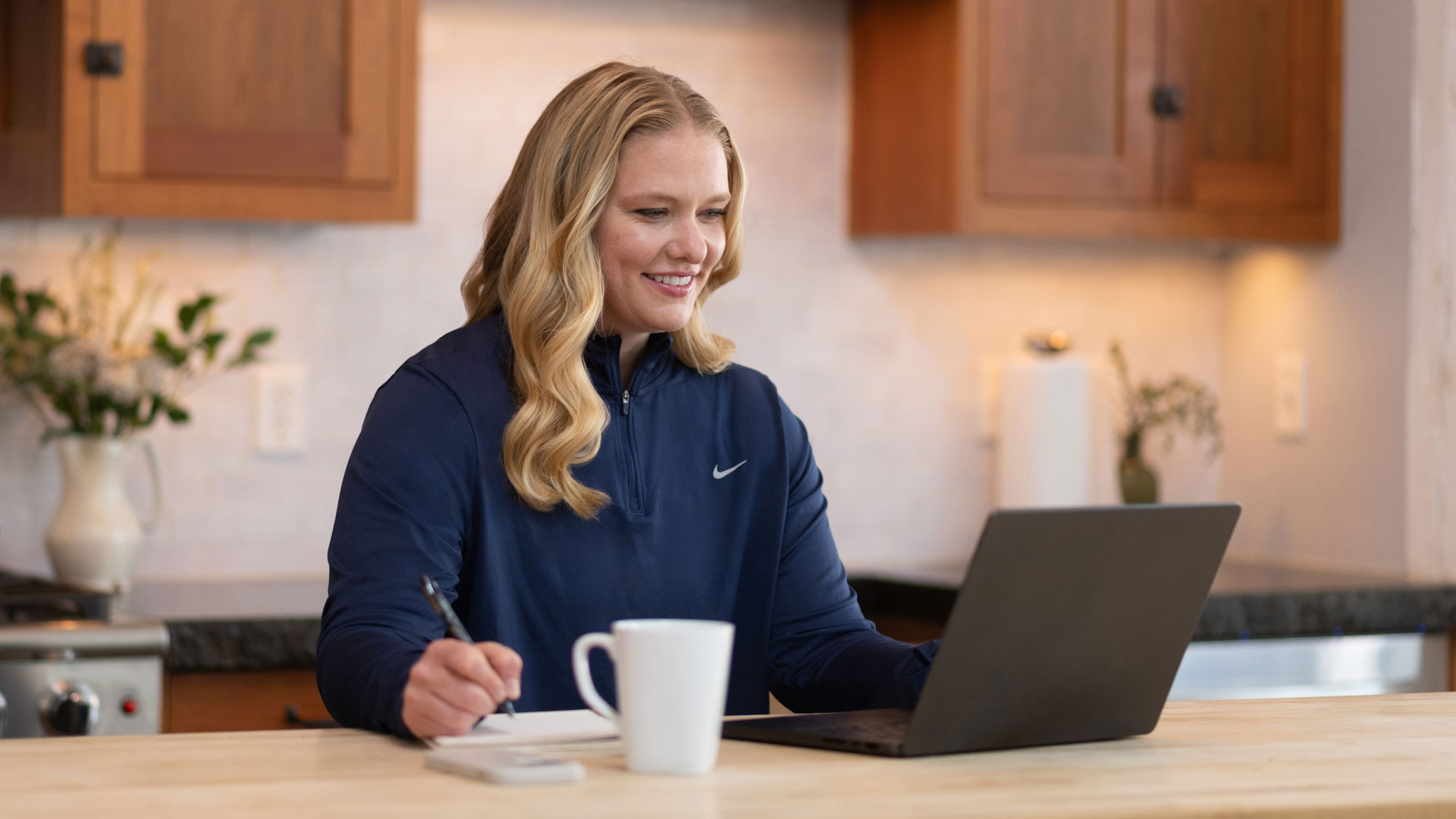
Chasing dreams at full speed with Purdue Global
“Instantly” is the best way to describe how Hollermann responded to the email announcement that Team USA was partnering with Guild to provide athletes with the educational opportunities they needed to build a future after sports.
“As soon as I read the email, I applied immediately,” she says. “I’d been waiting for something like this.”
And her experience with Purdue Global has already shown that it will go above and beyond for its students.
“Already, the process with my advisor has been really good with getting set up. When I was applying for my bachelor’s with other universities, I didn’t have quite such an interactive experience with that person as I have with Purdue Global,” she says. And the online platform, to her, makes all the difference in making her return to classes an attainable goal.
“As Olympians and Paralympians, we dedicate our lives to something that’s a short-term thing. We’re spending countless hours on a sport where retirement comes at such a young age. So you have to be prepared for what’s next after that point, but there’s not many hours in the day to fit it in,” she says. “It’s great to have a platform that’s flexible and inexpensive for us.”
For Hollermann, the future with her team and beyond is taking clearer shape. But first, the Paris Games are upcoming, and she’s ready to bring home some hardware.
“Basketball is growing so much, and it’s in a unique position where it’s more competitive than it’s ever been before,” she says. “So going to this Paralympics, of course we always want to win golds. We want to have something shiny wrapped around our necks at the end of it. But I think Team USA is in a really great position to be able to do that this year. The team is so deep, so competitive, and we’re really looking forward to the Paralympic Games.”
In the meantime, Purdue Global is there, so she’ll be ready to chase what’s next. It’s all joy, and she can’t wait to pass it on to others.
“There are a lot of dreams outside of basketball. I want to have a family and a house and live a happy life,” she says. “As a disabled female athlete, I’ve had a lot of moments of insecurity. I hope that being entirely myself and being confident in who I am gives other girls the ability to be confident and happy in their own skin, too.”
If you’re doing something you like, then it isn’t work. It’s something more joyful than that.
Rose Hollermann U.S. Paralympian, Wheelchair Basketball
MS Education
